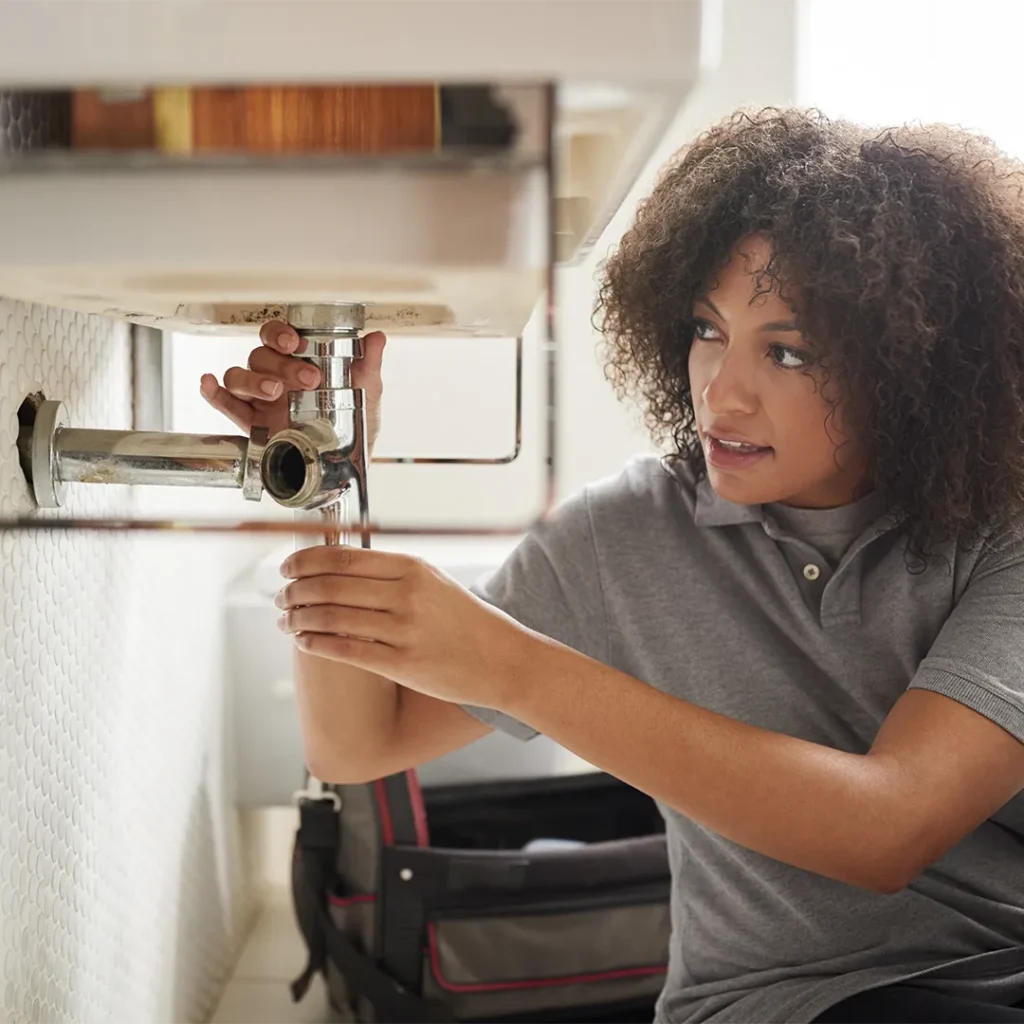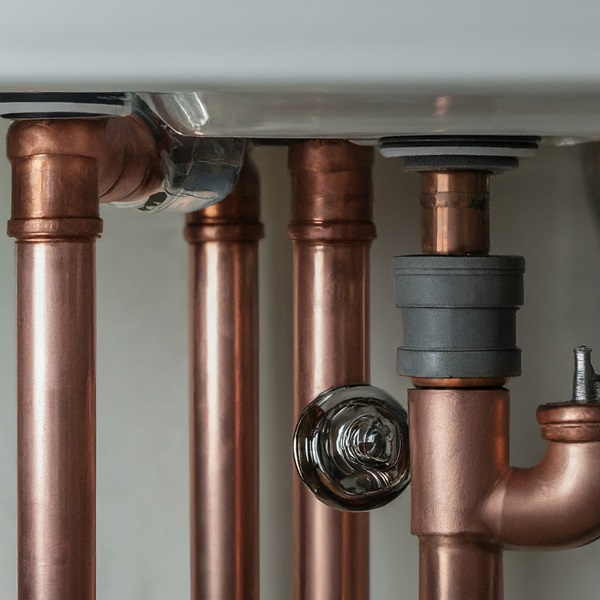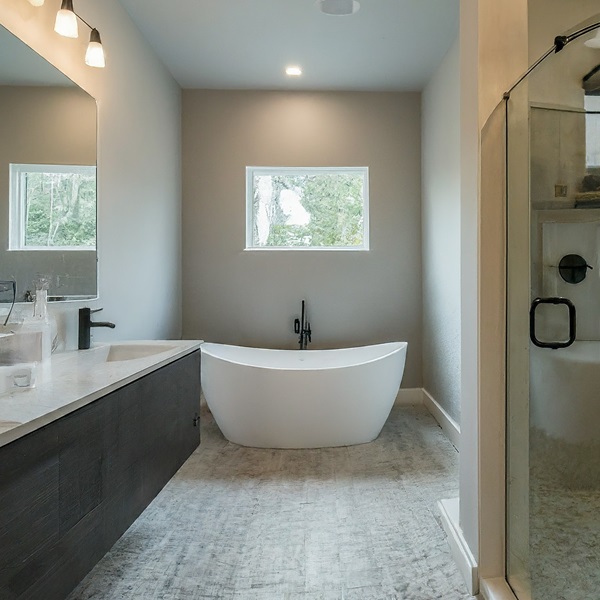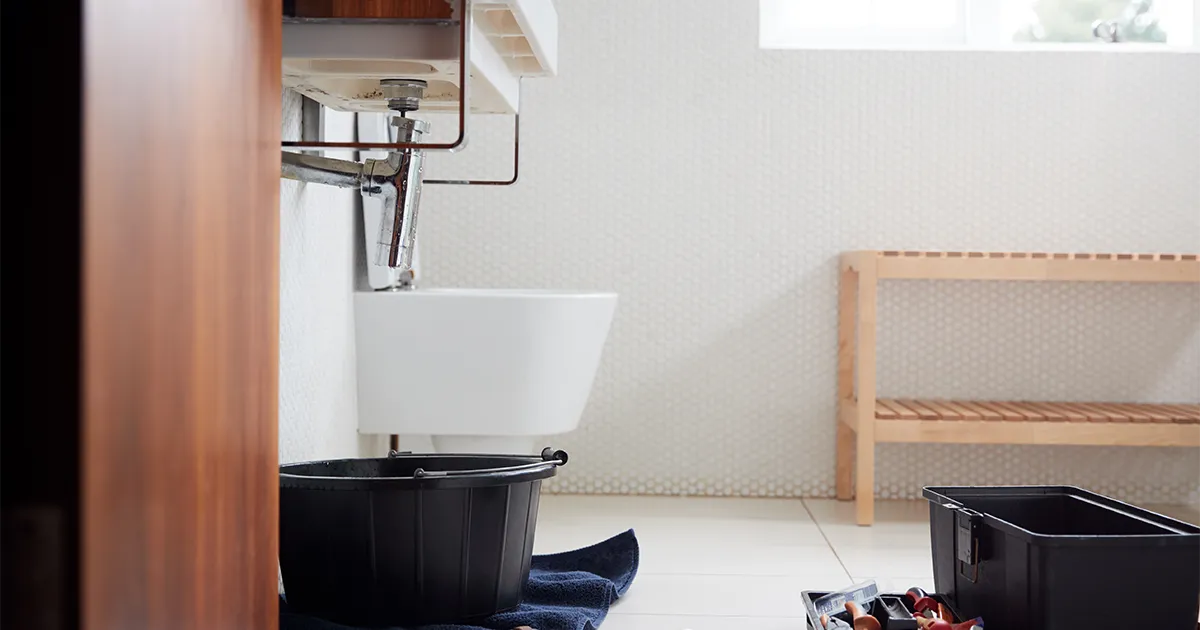In this article:
- Why Do I Need a Permit to Remodel a Bathroom in MA
- Can a Homeowner Do Their Own Plumbing in Massachusetts
- When Do You Need a Permit to Remodel a Bathroom in MA
- Who is responsible for pulling permits in Massachusetts
- Permit Application Process
- What is the Code for a Bathroom in Massachusetts
- Does a Bathroom Have to Have a Window in Massachusetts
- Can you sell a house with unpermitted work in Massachusetts
A bathroom remodel can significantly enhance your home’s functionality and aesthetics. Modern water efficient bathroom ideas and practical plumbing solutions help homeowners save money and benefit the environment. However, before homeowners in Massachusetts grab their sledgehammers, there’s one crucial question they have to ask: Do I need a permit to remodel a bathroom in MA?
Many homeowners embark on bathroom remodeling projects with a common concern about permitting. In Massachusetts, certain remodeling activities do require permits to ensure the work complies with the latest building codes, safety standards, and local regulations. Here’s everything you need to know for 2025.
Why Do I Need a Permit to Remodel a Bathroom in MA?
A permit to remodel a bathroom in MA isn’t just a hurdle to jump through. Permits are there to protect you and your home. Improper plumbing work can lead to hidden leaks, mold growth, or even water pressure problems. Projects without permits can face fines, work delays, insurance issues, and complications during resale. Additionally, permitted home improvements may qualify as tax-deductible expenses—learn more in our guide on What Home Improvements are Tax Deductible.
There’s more to it than just safety, though. Permits protect homeowners by ensuring renovations meet safety, health, and structural integrity standards. Remodeling without a required permit can result in:
- Fines and penalties.
- Project delays or work stoppages.
- Insurance complications.
- Difficulties during home inspections or property resale.
Can a Homeowner Do Their Own Plumbing in Massachusetts?

We are often asked: What plumbing work can be done without a license in MA? In Massachusetts, homeowners can perform minor plumbing repairs themselves, but a licensed plumber is required for most plumbing work. In fact, there is a very limited list of plumbing work that a homeowner can do without a permit in MA. A permit is not required for basic plumbing repairs such as fixing a leaky faucet, replacing a shower head, or clearing a blocked drain. However, even these simple repairs should not involve moving the fixture or changing its plumbing connections.
When Do You Need a Permit to Remodel a Bathroom in MA?

In Massachusetts, permits are typically required if your bathroom remodel includes:
- Adding or relocating plumbing fixtures.
- Modifying or installing electrical wiring or outlets.
- Structural changes, including expanding or relocating walls.
- Ventilation changes, such as installing or replacing exhaust fans.
- Major repairs or alterations involving plumbing, electrical, or structural components.
Minor cosmetic changes, like painting, replacing cabinet hardware, or swapping out bathroom accessories, generally do not require permits.
Who is responsible for pulling permits in Massachusetts?
 The permit responsibility usually falls on whoever is doing the work. Hiring a contractor? They should handle obtaining the permit from your local building department. Planning a DIY remodel? You’ll be responsible for getting the permit yourself. This applies to any project requiring a permit, not just plumbing work.
The permit responsibility usually falls on whoever is doing the work. Hiring a contractor? They should handle obtaining the permit from your local building department. Planning a DIY remodel? You’ll be responsible for getting the permit yourself. This applies to any project requiring a permit, not just plumbing work.
Here are some helpful resources to make navigating the permit process easier:
Mass.gov – General permit information and construction regulations in Massachusetts.
Board of Building Regulations and Standards (BBRS) – This site provides details on the statewide building code and the permit application process.
Your Local Building Department – They’ll have the most up-to-date info on specific permit requirements and the application process in your area.
Mass Plumbing Code Approved Products System – This free system provides a comprehensive list of proper plumbing products.
Permit Application Process
If you have decided to take the permits into your own hands, follow these steps to make the process as smooth as possible:
-
Consult Local Authorities: Contact your local building department to identify specific permit requirements and any local variations.
-
Prepare Your Application: Create detailed project plans that clearly outline plumbing, electrical, ventilation, and structural changes.
-
Submit Your Plans: Present your plans and complete the permit application to your local building department, paying any necessary fees.
-
Schedule Inspections: Arrange for periodic inspections during construction to confirm compliance with all building codes and regulations.
What is the Code for a Bathroom in Massachusetts?
You may be surprised to find out that Massachusetts does not have unified bathroom code. Instead, there are several sets of regulations that cover different aspects of your remodel, like minimum space requirements, fixture needs, and ventilation standards. Following these codes ensures your new bathroom is safe, functional and, well, up to code.
Here’s a quick breakdown of the key regulations:
Massachusetts State Building Code (780 CMR): This is the main building code for the state, setting minimum standards for various aspects of construction, including plumbing. Relevant sections include:
- Accessibility (521 CMR): This covers features like grab bars and clearances for wheelchairs in bathrooms required to be accessible (e.g., multi-unit dwellings).
- Plumbing (521 CMR 40 & 44): This section specifies requirements for plumbing fixtures, venting, water supply, drainage, and the materials used in your bathroom’s plumbing system.
Given the complexities of these regulations, hiring a licensed contractor experienced in bathroom remodels is a smart move. They can ensure your project complies with all the relevant codes, preventing potential safety hazards and future problems. Additionally, your local building department can provide more specific information on requirements in your area.
Does a Bathroom Have to Have a Window in Massachusetts?

The good news is that a window isn’t mandatory for your Massachusetts bathroom. However, proper ventilation is essential. The Massachusetts State Sanitary Code requires all bathrooms to have either windows, skylights, or exterior doors. But don’t worry if your dream layout lacks a window – mechanical ventilation options like exhaust fans are perfectly acceptable. To explore ventilation options that suit your specific remodel, consult with a qualified contractor.
Can you sell a house with unpermitted work in Massachusetts?
Well, yes, you can sell a house with unpermitted work in Massachusetts. However, it is risky and can lead to complications. While disclosure isn’t legally mandated, failing to do so (especially when a buyer discovers the work later) can lead to lawsuits. There are several ways to approach the unpermitted work situation when getting ready to sell a house in Massachusetts. Do not underestimate the role and importance of building inspectors. They can help guide you to the best solution in your unique situation.
- Disclose and Address Issues. Transparency is Key. Be upfront with potential buyers about any unpermitted work. Include details in your disclosure statement and provide copies of any relevant paperwork you have.
- Consider Repairs. Depending on the nature and extent of the unpermitted work, consider fixing any issues before selling.
- Obtain Retroactive Permits. In some cases, you may be able to obtain retroactive permits for the unpermitted work. This process involves inspections by local building officials and potentially bringing the work up to code.
- Property Condition Report (PCR). This report completed by a qualified inspector will identify any unpermitted work and potential problems with the house. A PCR will strengthen your disclosure and demonstrate transparency to buyers.
The best course of action depends on your specific circumstances. Consulting with a real estate agent experienced in handling such situations can be extremely helpful. They can assess the situation, recommend the most suitable approach, and guide you through the process.
Conclusion
Now that you are empowered by the knowledge of bathroom permit regulations in Massachusetts, you’re well on your way to achieving your remodeling dream. Remember, consulting with a qualified contractor experienced in Massachusetts bathroom remodels can further ensure a smooth and successful project. With careful planning and adherence to regulations, you will enjoy your new bathroom for years to come.
- Always check your local regulations, as permitting requirements can vary.
- Major renovations involving plumbing, electrical, or structural changes require permits.
- Following the latest Massachusetts building codes is crucial for safety and compliance.
- Properly permitted projects maintain home value, simplify future sales, and may even be eligible eligibility for home improvement tax credits.
In addition, explore water-efficient bathroom ideas and smart home technology options to increase your home’s efficiency, value, and convenience.
By understanding the importance of permits and following these guidelines, you’ll ensure a smooth, compliant bathroom remodel in Massachusetts.








